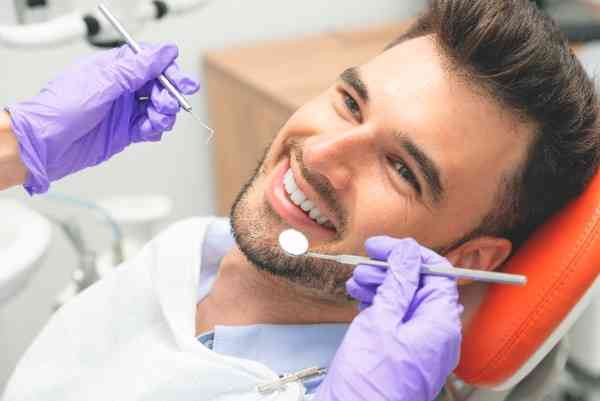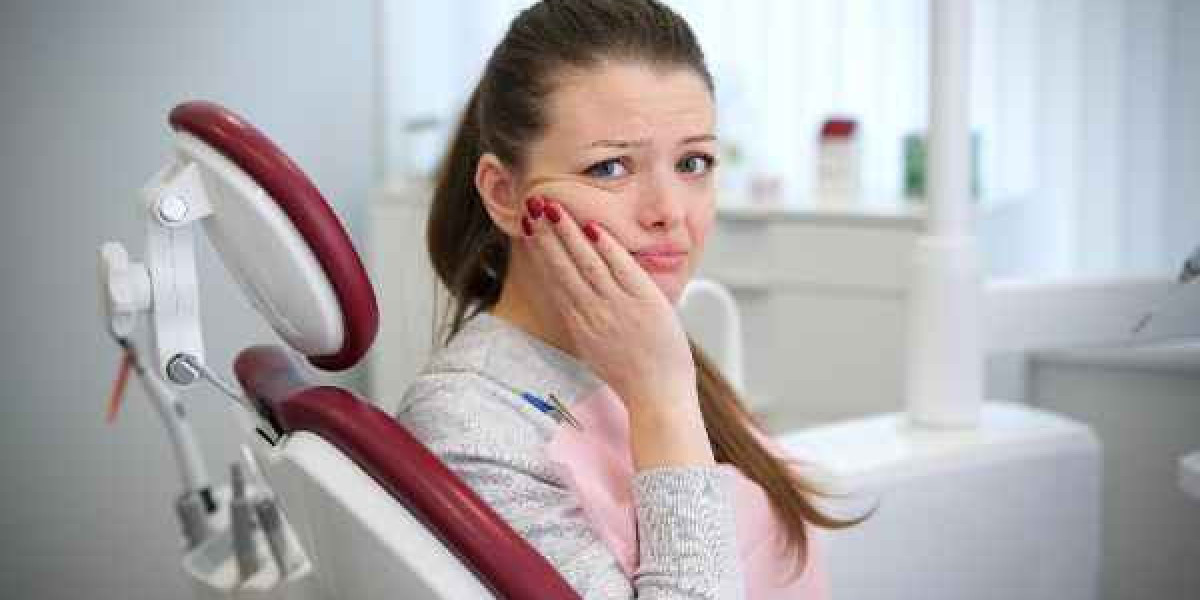Dental problems can arise suddenly and disrupt your day in an instant. From intense toothaches to unexpected injuries, some symptoms shouldn’t be ignored. Acting quickly in these situations can prevent serious complications and help you get back to normal faster. This guide will walk you through the signs that point to a true dental emergency, what to do if they happen, and how to avoid making things worse. Knowing when to seek help can save your smile and your comfort.
Common Symptoms That Need Urgent Dental Attention
Pain, swelling, bleeding, these are warning signs. Let’s break down what counts as a real dental emergency and why it shouldn’t be brushed off.
Severe Tooth Pain That Keeps You Awake
The first instinct might be to pop a painkiller and hope it passes. But if the pain is throbbing, doesn’t go away, or gets worse at night, it’s time to act. An emergency dentist in St Albans can assess the root of the problem quickly.
Common causes:
- Infected pulp – Bacteria can enter the soft centre of the tooth through decay or cracks, causing inflammation and intense pain.
- Abscess – A collection of pus near the root of a tooth, usually resulting from bacterial infection.
- Advanced decay – Deep cavities that reach the nerve, often requiring root canal treatment or extraction.
If left untreated, it may lead to:
- Spreading facial swelling: Swelling that starts in one area of the mouth or jaw can quickly extend across the face, cheeks, or neck. It often indicates a deep infection, especially if it feels warm, firm, or painful to touch. This kind of swelling can interfere with speaking, eating, or even breathing in severe cases. If you notice the swelling increasing rapidly, it’s a strong signal to contact an emergency dentist in St Albans or seek urgent medical attention.
- Facial cellulitis infection: Cellulitis is a potentially serious skin and soft tissue infection that can develop when bacteria from a dental issue spread beneath the surface. The skin may look red, feel hot and tight, and be painful or swollen. In some cases, it can cause fever or fatigue. This condition isn’t just about discomfort—it can spread through the bloodstream if untreated, making fast diagnosis and antibiotics crucial. An orthodontist St Albans may refer urgent cases like this straight to emergency care.
- Jawbone infection (osteomyelitis): This rare but dangerous condition occurs when bacteria from an untreated dental infection reach the bone. Osteomyelitis can lead to severe jaw pain, swelling, fever, and reduced ability to open the mouth. The area may feel tender or develop pus drainage. Treating it usually requires strong antibiotics and, in some cases, surgical intervention. If you're receiving care from an orthodontist St Albans and notice intense, deep jaw pain along with swelling, it's important to seek help straight away.
Prompt action helps avoid complications that could affect your jaw, airway, or even your general health.

Knocked-Out or Loosened Tooth
When a tooth is completely knocked out or noticeably loose from trauma, it’s not something that can wait until Monday. Call an emergency dentist in St Albans immediately, every minute counts.
What you can do:
- Pick up the tooth by the crown, not the root
- Rinse gently without scrubbing
- Place it in milk or under your tongue
- Try to get to the dentist within 30–60 minutes
In many cases, reimplantation is possible if treated quickly. Waiting too long could mean permanent loss.
Facial Swelling or Abscess
A swollen cheek, jawline, or gum is more than a cosmetic concern, it could be the result of an abscess or spreading infection. This often presents with fever, pain, or difficulty opening the mouth.
Orthodontic issues can also trigger soft tissue reactions. If you’re under the care of an orthodontist St Albans, they’ll want to know about sudden changes or discomfort immediately.
Seek help if you notice:
- Swelling that gets worse rapidly
- Redness and heat on the face
- Difficulty breathing or swallowing (go to A&E)
What Happens During an Emergency Dental Visit
Knowing what to expect can take the fear out of getting help. Here's what typically happens when you see an emergency dentist in St Albans:
Step | What Happens |
Assessment | The dentist will ask about your symptoms, medical history, and examine the affected area. |
X-rays | If needed, imaging helps diagnose what's going on beneath the surface. |
Treatment | Depending on the issue, this could be antibiotics, a temporary filling, or an emergency procedure like drainage or extraction. |
Follow-Up | You'll receive advice for aftercare and be booked for further treatment, if necessary. |
Braces and Urgent Care
Orthodontic treatment can bring its own set of unexpected issues. If you’re undergoing treatment with an orthodontist St Albans, you might run into situations where urgent care is needed, especially if braces or wires break.
Common orthodontic issues:
- Broken brackets or wires – Sharp metal can cut gums or cheeks.
- Severe brace-related pain – This may be due to rapid shifting or poor appliance fit.
- Loose appliances – Risky if swallowed or causing injury.
In these cases, the best first step is to contact your orthodontist St Albans, but if the issue causes bleeding, swelling, or intense pain, emergency care is the right call.
Not Sure If It’s an Emergency?
Some problems may feel dramatic in the moment, but not all require same-day treatment. Here’s a quick reference table:
Issue | Emergency? | What to Do |
Chipped tooth (no pain) | No | Book regular appointment |
Lost crown | Sometimes | Use dental cement, call your dentist |
Object stuck between teeth | Sometimes | Gently floss or seek help if painful |
Mild tooth sensitivity | No | Monitor, switch to sensitivity toothpaste |
When in doubt, ring your dental practice, they can advise whether you need to come in or wait.
Prevention: The Best First Aid
While accidents happen, some dental emergencies can be avoided with a bit of planning.
Top prevention tips:
- Don’t chew ice or use your teeth to open packaging
- Use a sports mouthguard if you play contact sports
- Keep up with dental check-ups and cleanings
- Follow care advice from your orthodontist St Albans, especially if using aligners or retainers
- Address small dental issues early before they become big ones
These habits can go a long way in protecting your teeth and your wallet.

When to Go Straight to A&E
There are certain dental emergencies where even an emergency dentist may not be enough, and you need hospital care right away. Call 999 or go to A&E if you experience:
- Swelling that affects breathing or vision
- Heavy bleeding that doesn’t stop after 15 minutes of pressure
- Suspected broken jaw or facial bones
- High fever with facial swelling or redness
These are rare, but they require immediate medical attention.
Conclusion
Dental emergencies can strike at any time, but understanding the signs can help you take the right action quickly. From severe pain to brace-related injuries, recognising what counts as urgent is the first step toward protecting your smile. Whether you need an emergency dentist in St Albans or have unexpected issues with your orthodontist St Albans, prompt care can prevent serious complications. Smilo Dental Implants Group is here to support you with fast, professional dental attention whenever you need it most.



